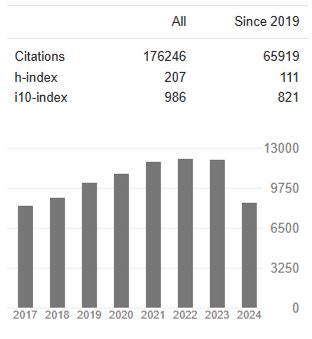Ethical Pharmaceutical Practices and Beliefs in Lebanon: A National Cross-Sectional Study
Abstract
Aline Issa Barcha and Bahia Fadel
Background and Objectives: Pharmacy practice is in constant evolution. Ethical dilemmas are more often encountered and more complicated therefore the need to reform the code of pharmaceutical ethics in Lebanon is growing. Until today there has been no study investigating the ethical attitudes and beliefs among pharmacists and pharmacy students in Lebanon. The primary objective of this present study is to explore and understand pharmacists’ knowledge and attitudes towards ethics and good pharmacy prac- tice in daily experience in Lebanon and to determine the factors affecting these attitudes.
Methods: This was a cross-sectional study conducted among pharmacists and pharmacy students in Lebanon using a snowball sampling technique. An online questionnaire based on Google Forms was used to collect data. Descriptive and inferential analy- ses were conducted using SPSS statistics 26. Chi-square and Fisher exact tests were used. Tests were two-tailed and results with a p-value of ≤ 0.05 were considered statistically significant.
Results: Six hundred eighty-seven pharmacists and pharmacy students responded to the survey. Participants showed high im- plications in a patient-centered and collaborative approach (90%). The study shows financial pressure on pharmacists resulting in selling unneeded products (68%), selling products with the highest profit margin (57%) and below the official price (12%). Collaboration with other healthcare providers was a core standard in pharmacy practice (93%) and 47% assured the need for ongoing continuous education after licensure. The study shows the youngest age category having the highest agreement on continuous education being essential for maintaining licensure (65%, p=0.02). Pharmacists working outside Beirut and Mount Lebanon tend more to refuse overlooking expiry dates compared to other regions (77% vs 67%, p=0.017). Pharmacists working in the community pharmacy field tend to promote self-medication and sell unneeded products significantly more than those working in other pharmacy fields (p=0.001) and are significantly more implicated in personal development compared to other pharmacy fields (p=0.002).
Conclusion: The present study investigated the ethical practices of pharmacists in Lebanon shedding the light on challenges and dilemmas facing the pharmacist in daily practice. Further research on a large scale is needed helping to improve the code of ethics and guiding the Lebanese pharmacists in their daily practice.




